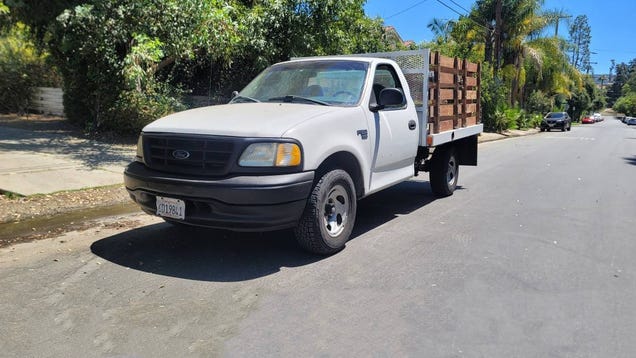Evaluating the Value of a Bare-Bones Ford F-150 for Practical Use
When considering a vehicle for practical applications, the Ford F-150 has long been a staple in the truck market. Recently, a 2000 model with a stake bed configuration has garnered attention for its utilitarian design and affordability. This article delves into the specifics of this truck, addressing its suitability for various tasks, its pricing, and what potential buyers should consider before making a purchase.
Understanding the Appeal of a Stake Bed Truck
Stake bed trucks, like the one in question, are designed for versatility. Their open design allows for easy loading and unloading of materials, making them ideal for agricultural work, landscaping, or even as a makeshift vehicle for hauling items during community clean-up days. The bare-bones nature of this F-150 means it lacks many of the modern conveniences found in newer models, but this simplicity can be an asset for those who prioritize functionality over luxury.
For instance, farmers may find this truck invaluable for transporting tools and supplies across fields, while small business owners can use it for deliveries without the worry of damaging expensive interiors. The absence of complex electronics also means fewer potential repairs, which can be a significant cost-saving factor.
Assessing the Price Point: Is It Worth It?
The current market value for a 2000 Ford F-150 with a stake bed configuration is a critical consideration. At a price point of $4,700, potential buyers must weigh the truck’s condition, mileage, and overall utility against similar vehicles in the market. According to the Kelley Blue Book, the average price for a used 2000 F-150 ranges from $3,000 to $6,000, depending on condition and mileage.
If this particular truck is well-maintained and has a reasonable mileage count, it could represent a fair deal. However, buyers should conduct a thorough inspection and consider obtaining a vehicle history report to ensure there are no hidden issues that could lead to costly repairs down the line.
Practical Considerations for Potential Buyers
Before committing to a purchase, prospective buyers should ask themselves several key questions:
1. **What will I primarily use the truck for?** Understanding the primary use can help determine if this model meets your needs. For heavy-duty tasks, consider the truck’s payload capacity and towing capabilities.
2. **How does it compare to newer models?** While newer trucks offer advanced technology and improved fuel efficiency, they also come with higher price tags. If budget constraints are a concern, a used truck like this F-150 may be a more viable option.
3. **What are the long-term costs?** Beyond the purchase price, consider insurance, maintenance, and fuel costs. Older trucks may require more frequent repairs, which can add up over time.
4. **Is it reliable?** Researching owner reviews and reliability ratings can provide insight into the long-term performance of the truck. Websites like Consumer Reports and J.D. Power offer valuable data on vehicle reliability.
Real-World Examples of Stake Bed Truck Utility
To illustrate the practical applications of a stake bed truck, consider the case of a local landscaping business that invested in a similar model. The owner found that the open bed allowed for easy transportation of plants, soil, and tools, significantly improving efficiency during busy seasons. This flexibility not only saved time but also reduced labor costs, as workers could load and unload materials quickly.
Another example is a community organization that uses stake bed trucks for neighborhood clean-up events. The ability to haul large amounts of debris and discarded items makes these trucks invaluable for such initiatives, fostering community engagement while providing a practical solution for waste management.
Making an Informed Decision
Ultimately, the decision to purchase a bare-bones Ford F-150 should be based on a careful assessment of its utility, condition, and price. While it may lack the bells and whistles of newer models, its straightforward design and functionality can serve a variety of practical needs. By considering the factors outlined above, potential buyers can make an informed decision that aligns with their specific requirements and budget constraints.
In a market where utility often trumps luxury, this F-150 could prove to be a valuable asset for those in need of a reliable workhorse.

